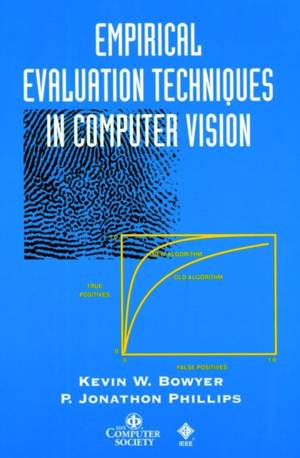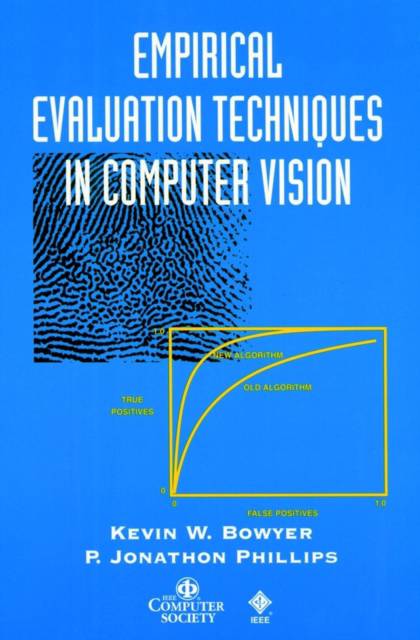
- Retrait gratuit dans votre magasin Club
- 7.000.000 titres dans notre catalogue
- Payer en toute sécurité
- Toujours un magasin près de chez vous
- Retrait gratuit dans votre magasin Club
- 7.000.0000 titres dans notre catalogue
- Payer en toute sécurité
- Toujours un magasin près de chez vous
Description
Empirical Evaluation Techniques in Computer Vision covers methods that allow comparative assessment of algorithms and the accompanying benefits:
- Places computer vision on solid experimental and scientific grounds
- Assists the development of engineering solutions to practical problems
- Allows accurate assessments of computer vision research
- Provides convincing evidence that computer vision research results in practical solutions
Empirical evaluations are divided into three basic categories providing useful insights into computer vision algorithms. Independently administered evaluations make up the first category. The second is evaluations of a set of classification algorithms by one group. The third category is composed of problems where the ground truth is not self evident. A major component of the evaluation process is to develop a method of obtaining the ground truth.
Empirical evaluations of algorithms are slowly emerging as a serious subfield in computer vision. The text builds a foundation for developing accepted practices for evaluating algorithms that determine the strengths and weaknesses of different approaches while identifying necessary further research. Successful evaluations can help convince potential users that an algorithm has matured to the point that it can be successfully fielded.
Spécifications
Parties prenantes
- Auteur(s) :
- Editeur:
Contenu
- Nombre de pages :
- 262
- Langue:
- Anglais
- Collection :
- Tome:
- n° 36
Caractéristiques
- EAN:
- 9780818684012
- Date de parution :
- 11-07-98
- Format:
- Livre broché
- Format numérique:
- Trade paperback (VS)
- Dimensions :
- 154 mm x 229 mm
- Poids :
- 362 g

Les avis
Nous publions uniquement les avis qui respectent les conditions requises. Consultez nos conditions pour les avis.






